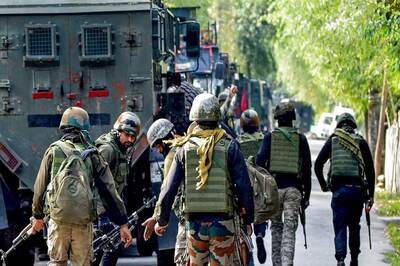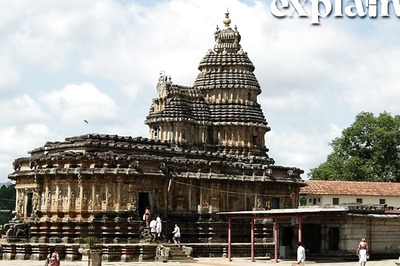
views
New Delhi: The Delhi government is planning to change the timings of all government offices to counter the alarming rise in pollution levels in the national capital.
Sources told news18 the Arvind Kejriwal government is closely monitoring the air quality of Delhi-NCR regions and the sudden concentration of PM2.5 particles in the city sky has made senior officials look at all damage control options.
Dust and smog continued to blanket Delhi and its nearby regions on Thursday, as air quality index (AQI) in several areas fell to the 'very poor' category. In Connaught Place’s Inner Circle, the Air Quality Index (AQI) reached 391 and major pollutant Particulate Matter (PM 2.5) was at an alarming 270.86.
In its advisory, the Center-run System of Air Quality and Weather Forecasting And Research (SAFAR) advised people of the sensitive category to avoid morning walks and outdoor activities.
Meanwhile, chief minister Arvind Kejriwal on Wednesday rubbished reports from various monitoring agencies that indicate burning of stubble, or agricultural waste, in neighbouring states is responsible for just 10 per cent of the air pollution in the capital.
“What is the basis for saying that? On what basis are such claims being made?” he asked while speaking to the media. “There is only one way of determining this:real-time source apportionment of pollution. There are machines which do this. We are trying to import these.”
Kejriwal appeared to be hitting out at union ministry of earth sciences’ air quality and weather forecast service, SAFAR, which said in a recent report that the share of stubble burning in the concentration of tiny PM2.5 particles in Delhi’s air has remained less than 10 per cent so far.
“If air samples are taken on a real-time basis and found out what are the sources for the pollution – to what extent is, say, transport responsible, to what extent are other factors responsible – only if one has the particular machine can one determine the percentage of pollution to each and multiple sources,” the chief minister said.
The Air Quality Index at Dwarka in the capital was 209 around 4pm on Wednesday.
An AQI between 0 and 50 is considered ‘good’, 51 and 100 ‘satisfactory’, 101 and 200 ‘moderate’, 201 and 300 ‘poor’, 301 and 400 ‘very poor’, and 401 and 500 ‘severe’. The levels had shot up over 300 in several parts of the capital and adjoining areas on Tuesday.


















Comments
0 comment